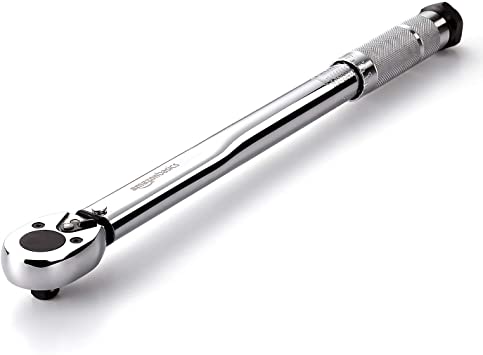What Is Retorquing And Why Is It Important?
Your tires may be removed multiple times throughout the year. Whether you are getting a seasonal tire changeover, swapping out your rims, getting your tires inspected, or getting a flat repaired, your lug nuts will be removed and retightened. In this guide we will discuss what torque is, why we ask you to return for a retorque, and the dangers of failing to do so.
What Is Wheel Torque?
The term “torque” means rotational force. In reference to wheels (“wheel torque”), it is simply a measurement of the tightness or twisting force applied to your wheel’s lug nuts. This number is represented as pounds-feet or “ft/lbs”. A common mistake many people make when they tighten their lug nuts is that they will simply tighten until they can’t physically tighten them anymore. Some people may even use their body weight to force the lug nut tighter; however, this is incorrect because it can damage your vehicle.
When your lug nuts are torqued too tight, the studs have nowhere to go, so they may begin to stretch. This puts tension on the studs and one or more can eventually snap off while driving. If your lug nuts are not torqued enough, they are loose, and may continue to loosen until they fall off while driving. In either case, driving without one or more functional wheel studs can be dangerous and could result in losing a tire while driving, a situation you do not want to be in.
The Right Torque
Each vehicle has specific torquing specs for their wheel lug nuts. In fact, your vehicle will have torquing specs for a variety of components, not just your wheels! Your wheel’s torque specs are unique. They take into account many vehicle factors, such as stud spacing, bolt size, and more. Wheel torque specs are available in your vehicle’s manual. If you do not have this, rest assured that your technician can look this spec up at your local Integra Tire. Wheel torquing should be done with a manual torque wrench, a precision tool that is used for this task (pictured below). Torque wrenches have dials which allow the specific torque to be “dialed in” to the wrench. Once the wrench audibly clicks while turning a lug nut, it means it is at the correct torque. Wheels will be tightened in the air and torqued once the vehicle is on the ground. Proper storage of a torque wrench is key to ensuring it works properly.
A star pattern is used when torquing your lug nuts in the correct order to ensure equal amounts of force on each side of the wheel. This will look different on each vehicle, depending on the bolt pattern.

Why Retorques Are Important
Each time your wheel is removed from the vehicle, your lug nuts will be tightened and torqued to the correct specs by your technician. After this is performed and as you drive, your vehicle’s lug nuts will experience many physical effects such as the vehicle’s weight, rotational effects of the wheel, and bumps. Even as your vehicle leaves the shop, your lug nuts and studs will warm or cool depending on the temperature outside. Debris and dust between your studs and lug nuts may also create small gaps. Once debris and dust are knocked loose, there will be empty space, causing unwanted movement.
In either case, you will need to return after driving 50km to have your lug nuts retorqued. This is typically done in a few minutes. No appointment is needed, and it is offered at no cost any time you visit an Integra Tire to have your wheels removed. You do not need to return to the same Integra Tire that performed the work. For example, if you are leaving on vacation and pass an Integra Tire location in another city, this location will perform this service for you for free.

